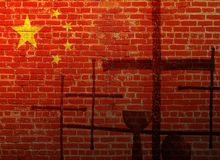


Our culture tends to show in how we preach. We may accept that premise, but what should we do about it? A six-step action plan.

Green parties gained much support in the recent local elections. To face the coming environmental crisis, “Christians will need a better grasp of the big picture of creation, fall and redemption”, says Rachel Calvert of A Rocha France.

In an interview, team members of the evangelical magazine ‘Ultimato’ analyse the burning issues of the largest country of South America. “The organic approach to church during confinement could change our ecclesiology”.

‘Out’ is Disney Pixar’s first film with a homosexual couple in the main role. Margunn S. Dahle, a researcher in media, children and worldviews, gives answers to questions that many parents may ask.

Surveillance, disbanding, and dreams of a burgeoning missionary movement.

It is important for Christians to face the fact that terrorism cannot be explained through the singular lens of persecution of Christians. An article by Wanjiru M. Gitau.

Millions face a ‘double crisis’ as the Covid-19 epidemic grows. “Migrant workers are walking hundreds of kilometres desperated to reach their home villages”, says an evangelical pastor. “Thousands of Christian doctors, nurses and paramedics are serving in the frontline”.

“The challenge for us is to welcome people into our churches, give them time in their process of discovering what it means to be a Christian, while holding on to Biblical standards”, says professor of religious studies Evert Van de Poll.

Churches are aware that the continent is one of the least prepared regions from a sanitary standpoint. Christians maintain an attitude of prayer and service while they work alongside the authorities.

As the epidemic rages in Europe, let us not forget that worldwide inequalities mean that some countries will be more affected than others.

“We need to realise that behind the trends, ideologies and mindsets that we face, there are spiritual realities”, says the general secretary of the Swedish Evangelical Alliance.

The last decade has seen a worsening of the working conditions which affect “family relationships”, says Jonathan Tame. The near future will probably be shaped by the ‘gig economy’ and the re-balancing of global capitalism.

Jim Memory analyses the main issues that have changed Europe in the 2010-2019 decade. How should Christians live in a continent that has lost its soul?

Africa has become “an easy prey, because of its vulnerability and the abiding Western interest in the region”, says the Secretary General of the Association of Evangelicals in Africa (AEA).

A Christian worker expelled by Xi Jinping's government in 2018 shares his views about the spiritual state of the country.

The UN International Court of Justice has issued precautionary measures to protect the Rohingya minority.

The case is closed, the debate continues.

Journalist and theologian José de Segovia reflects on the evolution of culture in the last decade, how it has affected evangelical Christians, and what new challenges they face.

Peruvian theologian Samuel Escobar analyses the decade from a missionary perspective: the changes in Christianity, the role of migration in evangelism, and the work for justice.

Growing pressure on Christians in China, Algeria, Burkina Faso, according to the 2020 Open Doors World Watch List. Christians face severe persecution in 73 countries.

Theologian José Hutter addresses the challenges evangelical churches have faced in the last decade, including same-sex marriage and the split between Western historic churches and the Christian majority in Africa and Latin America.

The link between the Holy Spirit and the Church is so organic that “for Benedict, Scripture, tradition, and the Roman magisterium always coincide because they are guided by the same Spirit”.

For Western European churches mission could be translated as: “Let’s go to other countries to serve”. However, for most Eastern European countries missiology is merely similar to theology.

Persecution rising toward levels under Chairman Mao.

Strengthening the church in the face of a troublesome trend.

Las opiniones vertidas por nuestros colaboradores se realizan a nivel personal, pudiendo coincidir o no con la postura de la dirección de Protestante Digital.